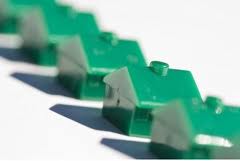 Although some recent news reports have focused on the diminishing threat of the shadow inventory and its likelihood to throw a wrench in the burgeoning American housing recovery, an economics editor at Bloomberg BusinessWeek believes that stakeholders in the housing market should still exercise caution.
Although some recent news reports have focused on the diminishing threat of the shadow inventory and its likelihood to throw a wrench in the burgeoning American housing recovery, an economics editor at Bloomberg BusinessWeek believes that stakeholders in the housing market should still exercise caution.
Two factors preventing an avalanche of foreclosures from materializing include the National Mortgage Foreclosure Settlement and the Home Affordable Refinance Program (HARP). The pace of foreclosures has slowed down considerably, a fact that is boosting optimism and has even contributed to a shortage of homes available for purchase in several regional real estate markets.
Writing for BusinessWeek, Peter Coy explains that there is enough evidence to worry about the shadow inventory potentially wrecking the positive gains experienced by the housing sector in part of 2011 and all of 2012.
1 - Homes in Financial and Physical Disrepair
Distressed properties are not only afflicted by their defaulted mortgages or their negative equity status. There is also the factors of their disrepair and the blight of the neighborhoods many of these properties are located in. These are the most dangerous assets in the massive shadow inventory portfolio of properties. Most banks have not put these wrecked homes on the market for a variety of reasons, or at least not yet. There is no question that many real estate investors and flippers would love to purchase these homes, but in doing so they will manage to depress the price recovery currently underway.
2 – Shadows of the Shadow Inventory
High demand in the rental market has moved some homeowners to put their properties up for lease only because they are unable to sell their homes, or at least not without considerable loss. Since these homes are not officially part of the shadow inventory, their impact cannot be ascertained. There is a valid concern, however, that the homeowners could wait until the right moment and put up their properties for sale en masse, thereby diluting the market.
3 – Overbuilding in the Horizon
Home builders in the United States are enjoying the burgeoning housing recovery since they have been basically dormant since around 2007. These builders are very eager to pick up where they left off, which could lead to overly positive speculations about the future. Overbuilding could lead to failed markets like Cape Coral in Florida, where many homes sat unfinished and abandoned for years.
4 – The Overall Economy
The housing market is highly dependent on other macroeconomic factors such as unemployment and consumer optimism. These are volatile factors that the housing market depends on to thrive, and viceversa. Should many properties in the shadow inventory come on the market at the same time deep periods of unemployment or low consumer optimism are prevalent, it would have a chilling effect on the housing recovery.



